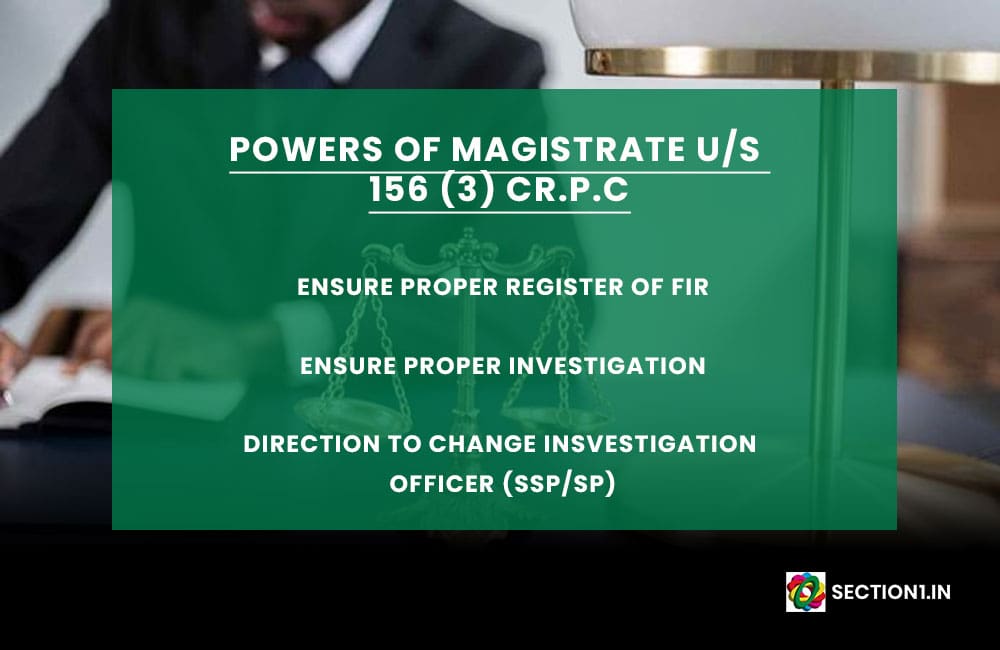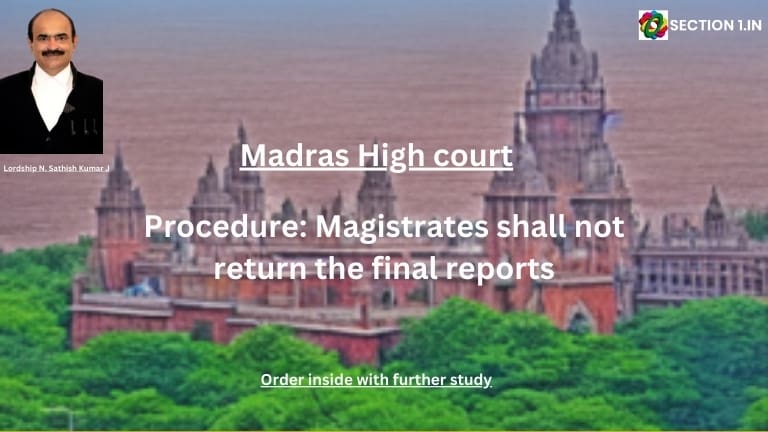Power to direct registration of first information report
- In our opinion Section 156(3) CrPC is wide enough to include all such powers in a Magistrate which are necessary for ensuring a proper investigation, and it includes the power to order registration of an FIR and of ordering a proper investigation if the Magistrate is satisfied that a proper investigation has not been done, or is not being done by the police. Section 156(3) CrPC, though briefly worded, in our opinion, is very wide and it will include all such incidental powers as are necessary for ensuring a proper investigation [Sakiri Vasu v. State Of Uttar Pradesh And Others – (2008) 2 SCC 409].
Ensure proper investigation & recommendation to the change of investigation officer
- We are of the opinion that if the High Courts entertain such writ petitions, then they will be flooded with such writ petitions and will not be able to do any other work except dealing with such writ petitions. Hence, we have held that the complainant must avail of his alternate remedy to approach the Magistrate concerned under Section 156(3) CrPC and if he does so, the Magistrate will ensure, if prima facie he is satisfied, registration of the first information report and also ensure a proper investigation in the matter, and he can also monitor the investigation.
-
In view of the settled position in Sakiri Vasu case, the impugned judgment of the High Court cannot be sustained and is hereby set aside. The Magistrate concerned is directed to ensure proper investigation into the alleged offence under Section 156(3) CrPC and if he deems it necessary, he can also recommend to the SSP/SP concerned a change of the investigating officer, so that a proper investigation is done. The Magistrate can also monitor the investigation, though he cannot himself investigate (as investigation is the job of the police). Parties may produce any material they wish before the Magistrate concerned. The learned Magistrate shall be uninfluenced by any observation in the impugned order of the High Court [Sudhir Bhaskarrao Tambe v. Hemant Yashwant Dhage and Others – (2016) 6 SCC 277].
Present situation or current proposition
- While it is not possible to accept the contention of the appellants on the question of locus standi, we are inclined to accept the contention that the High Court could not have directed the
registration of an FIR with a direction to the police to investigate and file the final report in view of the judgment of this Court in Sakiri Vasu v. State Of Uttar Pradesh And Others [(2008) 2 SCC 409]
Party
M. SUBRAMANIAM AND ANOTHER vs. S. JANAKI AND ANOTHER – CRIMINAL APPEAL NO. 102 OF 2011 – MARCH 20, 2020 – 3 Judge Bench.
Judgement.Pdf
Sakiri Vasu Vs State.Pdf
Afaq Jahan.Pdf
Additional notes:
Police has to register fir even magistrate does not say in words
“11. The clear position therefore is that any Judicial Magistrate, before taking cognizance of the offence, can order investigation under Section 156(3) of the Code. If he does so, he is not to examine the complainant on oath because he was not taking cognizance of any offence therein. For the purpose of enabling the police to start investigation it is open to the Magistrate to direct the police to register an FIR. There is nothing illegal in doing so. After all registration of an FIR involves only the process of entering the substance of the information relating to the commission of the cognizable offence in a book kept by the officer in charge of the police station as indicated in Section 154 of the Code. Even if a Magistrate does not say in so many words while directing investigation under Section 156(3) of the Code that an FIR should be registered, it is the duty of the officer in charge of the police station to register the FIR regarding the cognizable offence disclosed by the complainant because that police officer could take further steps contemplated in Chapter XII of the Code only thereafter” [Mohd. Yousuf v. Afaq Jahan – 2006 (1) SCR 1 – Crl.Apl No: 2 of 2006 – JANUARY 2, 2006].




